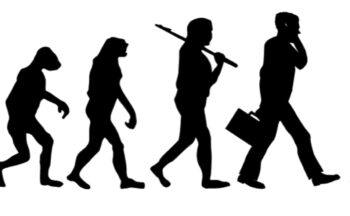 September 2022
September 2022
Coffee shops such as Starbucks are busy to the point where seating is often unavailable. This is part of a growing demand for places offering activity, relaxation and socialization. In the condo home demand is for exercise facilities, group classes and spaces to work, study or read.
All of this reflects what appears to be a growing a jobless economy. Its impact on condo living is likely to grow.
Why is it Happening
We desire modern life conveniences which include internet, smartphone, digital access to television and music, and social media friendships. While each is beneficial and harmless on its own, this hides a dramatic change in employment and income.
During each holiday shopping season, we read about huge Black Friday and Cyber Monday sales covering a three-day period. This distorts our perspective for the remaining 362 days each year.
Part of this is the Amazon effect. Few want to navigate crowded stores and malls. We order online and have items shipped to our home a few days later, including perishables. Stores close and jobs disappear. The fewer jobs created by online ordering pay less and are not usually local.
The economy appears to grow while jobs disappear. Remaining jobs pay less.
Livelihoods have been replaced by machines that are faster, smarter, cheaper and more efficient. Comparable transformations date back to the agricultural and industrial revolutions. The agricultural revolution was a period of increased crop productivity during the 18th and early 19th centuries in Europe. The industrial revolution was a transition to new manufacturing processes in Europe and the United States, in the 1700s to about 1840. Both created job loss and uncertainty on a broad scale as formerly desirable jobs disappeared.
Traditional and New Economies
We appear to have diverged into two economies. A new economy operating with different rules now functions alongside our traditional economy.
The traditional economy is governed by rising prices and incomes. It provides us with food, shelter, health care, clothing, transportation, and energy. Overall, this economy accounts for nearly 80 percent of expenditures for most people. Recently, this economy is struggling with high inflation and a shortage of employees.
The new economy offers lower prices, reduced incomes and fewer jobs. We obtain or purchase entertainment, education, information and communication. Each year we see improvements and lower prices. Today’s more powerful $1,000 phone or laptop replaces a desktop computer that used to cost $4,000. Internet pricing drops while speed and services improve. We take advantage of free software (freeware), on-line games, e-mail and social networks.
In this new economy, jobs pay less as prices drop. Most workers don’t benefit from technology. Worse, the new economy intrudes on the traditional economy causing further wage reductions and job loss. Wage gains fail to keep pace with housing prices, health costs, food, utilities and other necessities of life. Real household income, adjusted for inflation, is lower today than in 2000. The percentage of lower income families has increased while those in the middle-income range have declined. Hours worked has declined.
The Job Situation – Artificial Intelligence, Automation and Robots
 As jobs are replaced by robots and other technology, things are unlikely to improve. Estimates of job losses to come are staggering. One study looking at more than 700 occupations concludes that 47 percent of American jobs could soon be automated. A McKinsey study estimates that a third of current jobs in the US, and 400 to 800 million jobs worldwide, will be lost to automation by 2030. Each year in the US an estimated 2 million people are displaced by productivity improvements.
As jobs are replaced by robots and other technology, things are unlikely to improve. Estimates of job losses to come are staggering. One study looking at more than 700 occupations concludes that 47 percent of American jobs could soon be automated. A McKinsey study estimates that a third of current jobs in the US, and 400 to 800 million jobs worldwide, will be lost to automation by 2030. Each year in the US an estimated 2 million people are displaced by productivity improvements.
Lower prices require higher volumes to be profitable. Companies such as Google, Amazon and Netflix need revenue increases of up to $1 million to create a new job. This requires a level of growth unprecedented in history. The average job today requires less than $200,000 in revenue.
The new economy has been growing for 40 years while failing to create jobs replacing those lost in the traditional economy. Automated teller machines and check-out lanes in stores are now common. Walmart has commenced replacing inventory counters with robots that scan shelves faster and more frequently with immediate transmission of data. Vehicle purchases are replaced by car-share and drive-share services such as Lyft and Uber where workers struggle to earn a livable income. Food delivery is another convenience where workers appear unable to earn a livable wage. Others work on contract for fewer hours earning less and with fewer or no benefits.
Condo Communities are not Immune
Condo communities are impacted.
At the management level technology is desirable as a way to reduce management costs. Condo management software and accounting software save on staffing and money. Less material is printed, addressed and mailed. Technology allows concierge/security to do more with less manpower.
At the resident level technology is desirable to keep costs down as personal incomes are reduced. Those with more leisure time seek inexpensive ways to fill their day hence the growing demand for recreational and leisure-oriented amenities.
People spending more time at home either working or at leisure place greater pressure on communities. More water, electricity, heating and cooling are used daily. There is greater wear on carpets as people walk around. Elevators are more frequently used and require maintaining. Amenities are more heavily used and there is greater pressure for spaces to meet, work, relax and socialize.
The condo fee structure, maintenance routines and mixture of amenities that was appropriate when most travelled to the office is unlikely to be suitable with more people spending more time at home.
Change is in the air.







